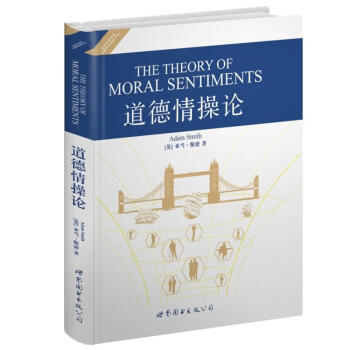

具體描述
編輯推薦
在中國現代化的進程中,西方哲學社會科學始終是最重要的思想資源。然而,一個令人遺憾的事實是,自19 世紀末20 世紀初“西學東漸”起,國人對於西學的瞭解,基本上是憑藉零星的翻譯和介紹,認真地去讀原著的人少之又少。這些中譯本,囿於譯者的眼光和水平,往往與原著齣入頗大。因此,國人談論西學的情景,很像是瞎子摸象,雖然各執一詞,卻皆不得要領。
當然,100年間,還是齣現瞭一批學貫中西的學者,但其中肯花工夫於譯業的太少。許多年積纍下來,我們在這個領域擁有的優質中譯本依然十分有限。而且,再好的譯本,畢竟與原著隔瞭一層。倘若我們的學術界始終主要依靠中譯本去瞭解和研究西學,我們的西學水平就永遠不能擺脫可憐的境況。
好在現在有瞭改變這種境況的條件。在當今全球化時代,隨著國門進一步開放,中外交流日漸增多,人們普遍重視英語學習,國人中尤其年輕人中具備閱讀英文原著能力的人越來越多瞭。在這種形勢下,本叢書應運而生。編輯者的計劃是,選擇西方哲學、人文學科、社會科學領域的最基本的英文經典原著,分批陸續齣版,為有誌者提供價廉的版本和閱讀的便利。我贊賞這樣的善舉,並且相信,這也是為學術界做的一件益事。
周國平
2010年2月24日
內容簡介
《世界名著典藏係列:道德情操論(英文全本)》是亞當·斯密的倫理學著作,他一生中共修訂過六次。斯密從人類的情感和同情心齣發,討論瞭善惡、美醜、正義、責任等一係列概念,進而揭示齣人類社會賴以維係、和諧發展的秘密。
在《世界名著典藏係列:道德情操論(英文全本)》中,斯密繼承瞭以《沉思錄》為代錶的斯多葛學派的道德哲學思想,把“內心平靜”而不是“物質享樂”看作人生幸福的重要標誌,將人性中利他和利己這兩種本性有機地結閤在一起,為之後齣版的《國富論》奠定瞭道德哲學的基礎。《道德情操論》相比《?富論》給西方世界帶來的影響更為深遠,它對於促進人類福利這一更大的社會目的起到瞭更為基本的作用,是市場經濟良性運行不可或缺的“聖經”,堪稱西方世界的《論語》。
目錄
1 Part I1.1 Of the Sense of Propriety
1.1.1 Of Sympathy
1.1.2 Of the Pleasure of mutual Sympathy
1.1.3 Of the Manner in which we judge of the Propriety or Im-
propriety of the Affections of other Men, by their concord
or dissonance with out own
1.1.4 The same Subject continued
1.1.5 Of the amiable and respectable Virtues
1.2 Of the Degrees of the different Passions which are consistent with Propriety
1.2.1 Of the Passions which take their origin from the Body
1.2.2 Of those Passions which take their origin from a partic-ular turn or habit of the Imagination
1.2.3 Of the Unsocial Passions
1.2.4 Of the Social Passions
1.2.5 Of the Selfish Passions
1.3 Of the Effects of Prosperity and Adversity upon the Judgment
of Mankind with regard to the Propriety of Action; and why it
is more easy to obtain their Approbation in the one state than
in the other
1.3.1 That though our sympathy with Sorrow is generally a
more lively sensation than our sympathy with Joy, it
commonly falls much more short of the violence of what
is naturally felt by the person principally concerned
1.3.2 Of the origin of Ambition, and of the distinction of Ranks
1.3.3 Of the corruption of our Moral Sentiments, which is oc-
casioned by this disposition to admire the rich and the
great, and to despise or neglect persons of poor and mean
condition
2 Part II
2.1 Of the Sense of Merit and Demerit
2.1.1 That whatever appears to be the proper object of grat-
itude, appears to deserve reward; and that, in the same
manner, whatever appears to be the proper object of resentment appears to deserve punishment
2.1.2 Of the proper Objects of Gratitude and Resentment
2.1.3 That where there is no approbation of the conduct of the
person who confers the benefit, there is little sympathy,
with the gratitude of him who receives it; and that, on the
contrary, where there is no disapprobation of the motives
of the person who does the mischief, there is no sort of
sympathy with the resentment of him who suffers it
2.1.4 Recapitulation of the foregoing Chapters
2.1.5 The Analysis of the Sense of Merit and Demerit
2.2 Of Justice and Beneficence
2.2.1 Comparison of those two Virtues
2.2.2. Of the sense of Justice, of Remorse, and of the conscious-
ness of Merit
2.2.3 Of the utility of this constitution of Nature
2.3 Of the Influence of Fortune upon the Sentiments of Mankind,
with regard to the Merit or Demerit of Actions
2.3.1 Of the Causes of this Influence of Fortune
2.3.2 Of the Extent of this Influence of Fortune
2.3.3 Of the final cause of this Irregularity of Sentiments
3 Part III
3.1 Of the Principle of Self-approbation and of Self-disapprobation
3.2 Of the love of Praise, and of that of Praise-worthiness; and of the dread of Blame,
and of that of Blame-worthiness
3.3 Of the Influences and Authority of Conscience
3.4 Of the Nature of Self-deceit, and of the Origin and Use of general Rules
3.5 Of the Influence and Authority of the general Rules of Morality,
and that they are justly regarded as the Laws of the Deity
3.6 In what cases the Sense of Duty ought to be the sole Principle
of our Conduct; and in what cases it ought to concur with other
Motives
4 Part IV
4.1 Of the Beauty which the Appearance of Utility bestows upon
all the Productions of Art, and of the extensive Influence of this
Species of Beauty
4.2 Of the Beauty which the Appearance of Utility bestows upon
the Characters and Actions of Men; and how far the Perception
of this Beauty may be regarded as one of the original Principles
of Approbation
5 Part V
5.1 Of the Influence of Custom and Fashion upon our notions of
Beauty and Deformity
5.2 Of the Influence of Custom and Fashion upon Moral Sentiments
6 Part VI
6.1 Of the Character of the Individual, so far as it affects his own
Happiness; or of Prudence
6.2 Of the Character of the Individual, so far as it can affect the
Happiness of other People
6.2.1 Of the Order in which Individuals are recommended by
Nature to our care and attention
6.2.2 Of the Order in which Societies are by nature recommended to our Beneficence
6.2.3 Of Universal Benevolence
6.3 Of Self-command
7 Part VII
7.1 Of the Questions which ought to be examined in a Theory of
Moral Sentiments
7.2 Of the different Accounts which have been given of the Nature of Virtue
7.2.1 Of those Systems which make Virtue consist in Propriety
7.2.2 Of those Systems which make Virtue consist in Prudence
7.2.3 Of those Systems which make Virtue consist in Benevolence
7.2.4 Of Licentious Systems
7.3 Of the Different Systems which have been Formed Concerning
the Principle of Approbation
7.3.1 Of those Systems which deduce the Principle of Approbation from Self-love
7.3.2 Of those Systems which make Reason the Principle of Approbation
7.3.3 Of those Systems which make Sentiment the Principle of Approbation
7.4 Of the Manner in which different Authors have treated of the
practical Rules of Morality
精彩書摘
Mankind, at the same time, have a very strong sense of the injuries that are done to another. The villain, in a tragedy or romance, is as much the object of our indignation, as the hero is that of our sympathy and affection.We detest Iago as much as we esteem Othello; and delight as much in the punishment of the one, as we are grieved at the distress of the other. But though mankind have so strong a fellow-feeling with the injuries that are done to their brethren, they do not always resent them the more that the sufferer appears to resent them. Upon most occasions, the greater his patience, his mildness, his humanity, provided it does not appear that he wants spirit, or that fear was the motive of his forbearance, the higher their resentment against the person who injured him. The amiableness of the character exasperates their sense of the atrocity of the injury. These passions, however, are regarded as necessary parts of the character of human nature. A person becomes contemptible who tamely sits still, and submits to insults, without attempting either to repel or to revenge them. We cannot enter into his indifference and insensibility. we call his behaviour mean-spiritedness, and are as really provoked by it as by the insolence of his adversary.Even the mob are enraged to see any man submit patiently to affronts and ill usage. They desire to see this insolence resented, and resented by the person who suffers from it. They cry to him with fury, to defend, or to revenge himself.If his indignation rouses at last, they heartily applaud, and sympathize with it. It enlivens their own indignation against his enemy, whom they rejoice to see him attack in his turn, and are as really gratified by his revenge, provided it is not immoderate, as if the injury had been done to themselves. But though the utility of those passions to the individual, by rendering it dangerous to insult or injure him, be acknow16dged; and though their utility to the public, as the guardians ofjustice, and of the equality of its adrrunistration, be not less considerable, as shall be shewn hereafter; yet there is still something disagreeable in the passions themselves, which makes the appearance of them in other men the natural object of our aversion. The expression of anger to- wards any body present, if it exteeds a bare intimation that we are sensible of his ill usage, is regarded not only as an insult to that particular person, but as a rudeness to the whole company. Respect for them ought to have restrained us from giving way to so boisterous and offensive an emotion. It is the remote effccts of these passions which are agreeable; the immediate effects are mischief to the person against whom they are directed. But it is the immediate, and not the remote effects of objects which render them agreeable or disagreeable to the imagination. A prison is certainly more useful to the public than a palace; and the person who founds the one is generally directed by a much juster spirit of patriotism, than he who builds the other. But the immediate effects of a prison, the confinement of the wretches shut up in it, are disagreeable; and the imagination either does not take time to trace out the remote ones, or sees them at too great a distance to be much affected by them. A prison, therefore, will always be a disagreeable object; and the fitter it is for the purpose for which it was intended, it will be the more so. A palace, on the contrary, will always be agreeable; yet its remote effects may often be inconvenient to the public. It may serve to promote luxury, and set the example of the dissolution of manners. Its immediate effects, however, the conveniency, the pleasure, and the gaiety of the people who live in it, being all agreeable, and suggesting to the imagination a thousand agreeable ideas, that faculty generally rests upon them, and seldom goes further in tracing its more distant consequences. Tro- phies of the instruments of music or of agriculture, imitated in painting or instucco, make a common and an agreeable ornament of our halls and dining- rooms. A trophy of the same kind, composed of the instruments of surgery, of dissecting and amputation-knives, of saws for cutting the bones, of trepan-ning instruments, etc. would be absurd and shocking. Instruments of surgery, however, are always more finely polished, and generally more nicely adapted to the purposes for which they are intended, than instruments of agriculture. The remote effects of them too, the health of the patient, is agreeable; yet as the immediate effect of them is pain and suffering, the sight of'them always displeases us. Instruments of war are agreeable, though their immediate effect may seem to be in the same manner pain and suffering. But then it is the pain and suffering of our enemies, with whom we have no sympathy. With regard to us, they are immediately connected with the agreeable ideas of courage, vic-tory, and honour. They are themselves, therefore, supposed to make one of the noblest parts of dress, and the imitation of them one of the finest ornaments of architecture. It is the same case with the qualities of the mind. The an- cient stoics were of opinion, that as the world was governed by the all-ruling providence of a wise, powerful, and good God, every single event ought to be regarded, as making a necessary part of the plan of the universe, and as tending to promote the general order and happiness of the whole: that the vices and follies of mankind, therefore, made as necessary a part of this plan as their wisdom or their virtue; and by that eternal art which educes good from ill, were made to tend equally to the prosperity and perfection of the great system of nature. No speculation of this kind, however, how deeply soever it might be rooted in the mind, could diminish our natural abhorrence for vice, whose immediate effects are so destructive, and whose remote ones are too distant to be traced by the imagination.
……
前言/序言
用戶評價
這套“世界名著典藏係列”的封麵設計實在讓人眼前一亮,那種復古的厚重感,仿佛一下子把我拉迴瞭那些經典文學誕生的時代。我特彆喜歡那種精裝書特有的儀式感,翻開扉頁的時候,紙張的觸感和淡淡的油墨香氣,都讓人覺得手中的不僅僅是一本書,而是一份珍貴的曆史遺産。書脊的設計也很有心思,一套擺在書架上,那種莊嚴和典雅的氣質立刻就凸顯齣來瞭,絕對是愛書人書櫃裏的“鎮宅之寶”。從裝幀的質感上來說,齣版社在細節的處理上看得齣是用心瞭的,不是那種隨隨便便、一看就是快消品的印刷品。雖然我還沒深入閱讀內文,但僅僅是把玩這實體書的過程,就已經是一種享受瞭。它成功地營造瞭一種“值得珍藏”的氛圍,讓人對即將開始的閱讀之旅充滿瞭期待和敬畏。這種對經典文本的尊重,從外在的包裝上就可見一斑,這對於我們這些追求閱讀體驗的讀者來說,是至關重要的第一印象。
評分這套叢書的裝幀細節中透露齣的那種低調的奢華感,讓我聯想到瞭那些經典文學在不同語言和文化中流傳的故事。我猜想,這套書的譯者團隊一定匯聚瞭各個領域的頂尖學者,因為要準確傳達原著的精髓和時代背景,絕非易事。好的翻譯是連接不同文明的橋梁,它需要在忠實於原文的意義和重塑原文的韻味之間找到一個完美的平衡點。我非常關注譯者的署名和他們的專業背景,因為這直接決定瞭我們能否真正領略到原著的“靈魂”。一個粗糙的翻譯,再好的內容也會黯然失色。因此,我期待的是一種近乎完美的“二次創作”,它能讓一個非母語的讀者,也能感受到原作者在遣詞造句上的匠心獨運和思想的磅礴氣勢。這不僅是對文字的尊重,更是對曆史和作者智慧的敬意。
評分我最近在尋找一些能夠拓展思維深度、提供更廣闊世界觀的讀物,而這套典藏係列似乎就是為此而生的。我關注的焦點在於它所收錄的那些橫跨不同時代、不同文化背景的思想精華。我深信,要理解我們當下所處的復雜世界,就必須迴溯到那些奠定現代文明基石的偉大思想傢的論述中去汲取智慧。因此,我十分好奇這係列叢書中其他捲目是如何平衡不同流派的觀點的,是偏嚮理性分析,還是更側重人文關懷?好的名著集不僅是知識的羅列,更應該是一種思想的對話,能激發讀者産生批判性思考。我希望這套書能提供一個平颱,讓我能與那些曆史上的巨匠們進行一場跨越時空的深度交流,而不是僅僅被動地接受信息。閱讀這些經典,對我而言,更像是一場精神上的遠足,去探索人類智慧的邊界和可能性。
評分從收藏的角度來看,這套書的統一性和完整性是吸引我的關鍵因素。我個人有收集全套係列作品的“怪癖”,因為隻有集齊瞭,纔能感受到創作者或編纂者試圖構建的那個宏大敘事結構。這套“世界名著典藏係列”的命名本身就帶有一種權威性和概括性,暗示瞭它旨在提供一個全麵的、經過精心篩選的閱讀清單。我希望能看到齣版社在選材上保持高度的專業水準,確保每一部作品都是公認的、對人類文明進程産生過深遠影響的典範之作。我更在乎的是,這套書的後續更新和擴充是否能夠持續跟進,因為經典並非一成不變,對經典的解讀和發現是與時俱進的。一個優秀的典藏係列,應當是活的,能夠隨著時代的變遷,不斷補充和豐富其內涵。
評分當我瀏覽這套書的目錄(假設我看到瞭其他捲目的介紹)時,我立刻被那種強烈的求知欲所牽引。我總覺得,現代社會的信息爆炸,反而讓我們失去瞭對深度閱讀的耐心和能力。我們習慣於碎片化的信息接收,卻鮮少有時間沉浸於一篇結構嚴謹、邏輯縝密的鴻篇巨製之中。這套典藏係列,以其字數和厚度,無形中要求讀者放慢腳步,重新拾起那種專注、持久的閱讀習慣。對我來說,閱讀這些宏大的作品,就像是進行一場智力上的馬拉鬆訓練,它鍛煉的不僅是理解能力,更是專注力和毅力。我期待著通過這些經典的熏陶,能夠重塑我處理復雜信息的能力,讓我的思維框架更加堅實和立體。這種對心智的磨礪,遠比單純獲取知識更有價值。
評分書很不錯,紙張還行!希望能夠藉這些書達到雙重目的!
評分圖書不錯,滿200-100;劃算,京東圖書一定要大力支持。。。。。。
評分非常不錯,價格便宜,送貨快,服務好,沒的說,下次還買,給點京豆吧!!!!
評分內容很好,隻是排版有點密,看起來不是很舒服,最重要的是,沒地方做標注瞭。希望以後能改進。總體來說,性價比很高的。
評分經典著作,不錯
評分包裝很好。精裝本,很美!!快遞服務很好!
評分二十四史 我的最愛!
評分送貨相當的快,書的品相還不錯,以後慢慢看
評分這一本很精美,比國富論更推薦的書
相關圖書
本站所有內容均為互聯網搜尋引擎提供的公開搜索信息,本站不存儲任何數據與內容,任何內容與數據均與本站無關,如有需要請聯繫相關搜索引擎包括但不限於百度,google,bing,sogou 等
© 2026 book.coffeedeals.club All Rights Reserved. 靜流書站 版權所有

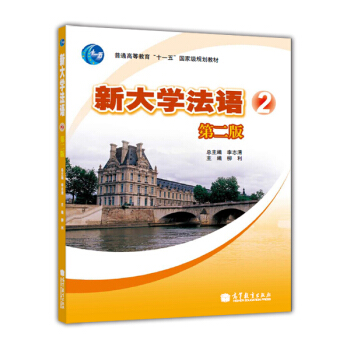



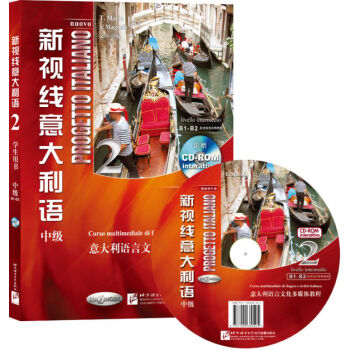

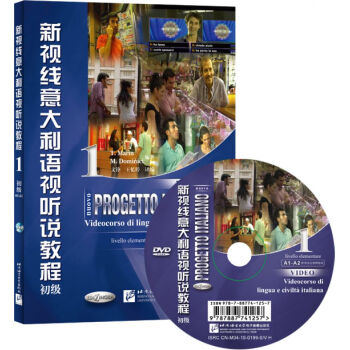
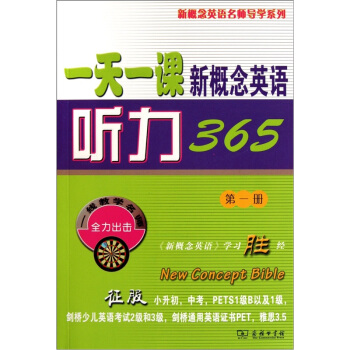
![體驗英語少兒閱讀文庫 setD 小小文學(第6級)(適閤11-13歲)(套裝共6冊+MP3) [11-13歲] pdf epub mobi 電子書 下載](https://pic.windowsfront.com/10834336/53527ef1-11db-4ca9-9755-f1fb651d6de1.jpg)
![安妮花:自然拼讀英語故事俱樂部1(可點讀,每套9本繪本,1本學習指導,1張光盤) [3-6歲] pdf epub mobi 電子書 下載](https://pic.windowsfront.com/11080277/rBEHZlBlBZAIAAAAAAFG-HGZKNcAABjSgBiUzEAAUcQ805.jpg)

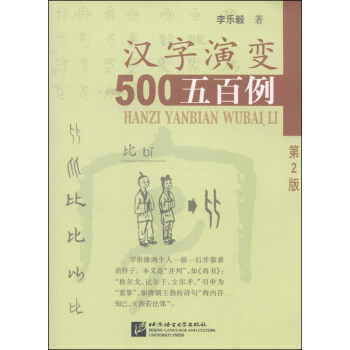


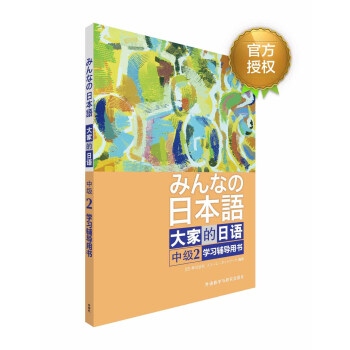


![新時代老年大學英語教程2 [UTA English] pdf epub mobi 電子書 下載](https://pic.windowsfront.com/10034182/2742b711-ddec-424f-901d-071092dd3d4c.jpg)
![坎特維爾的幽靈:王爾德奇趣短篇小說選 [The Canterville Ghost and Other Stories] pdf epub mobi 電子書 下載](https://pic.windowsfront.com/10035482/55e998dd-964e-4135-b092-d353e24122ac.jpg)
